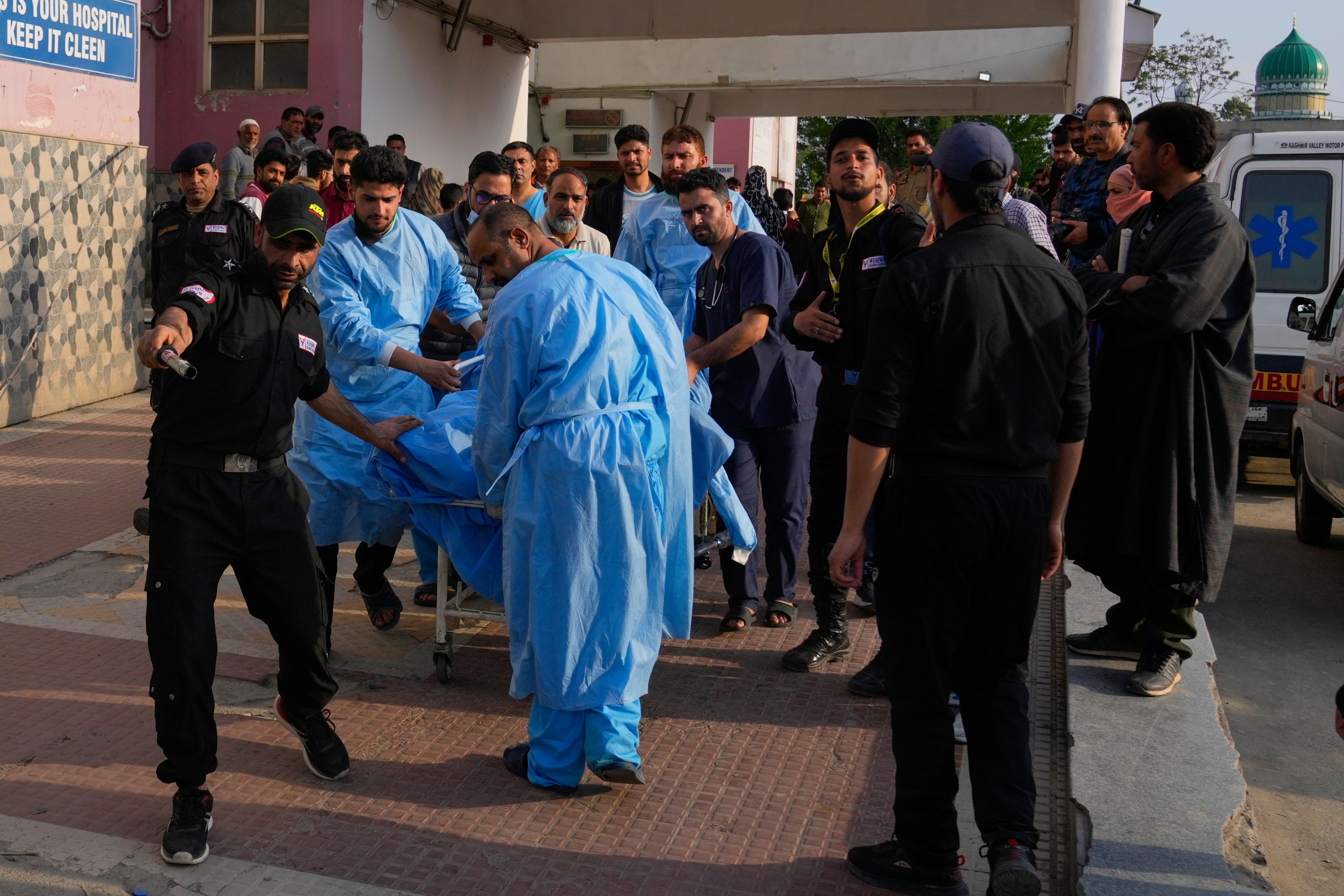India suspended a decades-old water treaty with neighbouring Pakistan, a day after unknown gunmen attacked tourists in Indian-administered Kashmir.
New Delhi on Wednesday has also declared Islamabad's defence/military, naval, and air advisers persona non grata at the Pakistani High Commission in New Delhi, giving them one week to leave the country.
India also closed the border crossing with Pakistan at Wagah, while New Delhi will restrict visas to Pakistani citizens, the government said in a statement.
At least 26 people were killed when unknown gunmen opened fire Tuesday on tourists in Indian-administered Kashmir, forcing Prime Minister Narendra Modi to cut short his trip to Saudi Arabia.
The decisions were made at an emergency Cabinet Security Committee meeting chaired by Modi in New Delhi.
India will withdraw its own defence/navy/air advisers from the Indian High Commission in Islamabad, according to the announcement. The posts in the respective high commissions are deemed null and void, the statement said.
Five support staff of the service advisors will also be withdrawn from both high commissions, it added.

Pakistani response
Islamabad has denied any involvement in the attack. Pakistani Defence Minister Khawaja Asif on Wednesday blamed India for sponsoring unrest within the neighbouring country.
Pakistan’s Foreign Ministry issued a statement expressing concern at the loss of lives in the attack.
Pakistan also convened a rare meeting of its National Security Committee to respond to diplomatic measures imposed by India over a deadly attack in Kashmir, the government said.
The committee - composed of senior civil and military officials and summoned only in cases of external threat or major terror attack - will meet on Thursday, Deputy Prime Minister Ishaq Dar, who is also the foreign minister, said on X.
Indus Water Treaty
New Delhi has suspended the Indus Water Treaty (IWT), a 64-year-old water-sharing agreement between the longtime rivals.
The two longtime rivals share six rivers' water under the IWT, a water-sharing agreement brokered by the World Bank in 1960.
Under the agreement, India receives the waters of the Sutlej, Beas, and Ravi rivers, while Pakistan gets the waters of the Indus, Jhelum, and Chenab rivers.
Pakistan accuses India of "continuously violating" the treaty by building dams on western rivers, whereas New Delhi believes Islamabad has more water than New Delhi as a result of the treaty.
Suspension of the treaty, according to some experts, will further aggravate tensions on the issue, giving New Delhi an edge to exploit water regulation.
It is the first time since the treaty was signed in 1960 that either of the parties has unilaterally suspended it.















